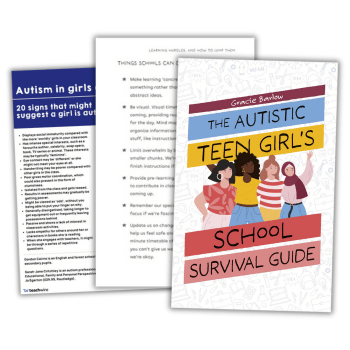This download contains an autism in girls checklist resource for teachers that lays out 20 signs that might suggest a girl in your class is autistic.
Download it and use it to help members of staff recognise potential signs of autism in girls and provide appropriate support. By spotting signs at an early age, you can stage timely interventions.
Girls with autism often present differently than boys, with their symptoms being more subtle or masked. Our autism in girls checklist can increase awareness and understanding in your staff room, leading to a more inclusive and supportive environment.
The download also includes an extract from The Autistic Teen Girl’s School Survival Guide by autistic author Gracie Barlow (Jessica Kingsley Publishers) about what schools can do to help autistic students thrive in education (and what students themselves can do).
As Gracie notes, “getting an education is exhausting” for those with autism who are also going through the “hormonal minefield and boundary-pushing behaviours of adolescence.”
Discover more resources for Autism Acceptance Week.
Spotting hidden autism symptoms in girls
Girls can often mask signs of autism to fit in, feel safe and gain acceptance. But it takes a heavy toll for those on the spectrum, says Sarah-Jane Critchley…
When you look at Beth, autism is not the first thing that you would think of. She is bright, open, smiley, makes great eye contact and comes alive when you start talking about Harry Potter. Before long, you start to realise that she could hijack your entire with her in-depth characterisation of Hermione.
She knows the likes and dislikes of all of the characters in the book, what house they belong to at Hogwarts, their family histories and their motivations. Yet in the playground, she is completely at sea. Unless she can persuade other children to join in her specific game, she will struggle to play at all.
Like many autistic girls, she seems on the edge of things, rather than in the centre. She is struggling and yet you wouldn’t know it. She is working so very hard to fit in, yet at a huge cost. It’s overwhelming and the effort is exhausting.
“She is struggling and yet you wouldn’t know it”
The story of each autistic girl is as different as the girls themselves. They can be tomboys, girly or geeky – and yet they share huge vulnerabilities.
Masking in autistic girls
Maryam is almost silent in class. She sits at the back watching how the other girls act and will never put her hand up. Now in Y6, she wears her clothes exactly the way the popular girls do. But unlike them, she doesn’t speak or laugh at school and the other children pick her last for team games.
She has a wide group of people she calls friends. However, none of them choose to sit next to her on the school trip. Like so many other girls, Maryam is masking or camouflaging to hide the fact she is autistic.
It’s a mask she can’t take off because she has to hide to fit in, to feel safe and have the same opportunities as everyone else. She buries her own identity so that even others accept her, she feels that no one knows the ‘real’ her. This takes huge, consistent effort and comes at a very high psychological cost.
She falls to pieces when she gets home. She appears fine at school, but her parents are worried.
It can feel almost impossible to meet the needs of each and every girl. This is especially the case when so much of their pain is internal. But if you look deeper, it isn’t hard to spot the child who is deeply unhappy and uncomfortable.
“She falls to pieces when she gets home”
Sixth sense
Experienced and empathetic teachers will have almost a sixth sense for the children that are struggling in their class. Tapping into your empathy can make the difference between a child being able to stay in class, develop their interests and learn the vital skills they need to navigate the confusing social world, and being so stressed they can no longer attend school at all.
It can help you to know that when you create the right classroom environment and get it right for these incredible vulnerable girls, you will be helping all of your pupils – and boys mask, too.
Everyone benefits from having clear structure to the day and their work, and knowing exactly what you expect.
Trust
Ava is amazingly artistic and is a fantastic actress and dancer. Her body communicates emotion in a way that she can’t. In class though, Ava is a challenging child. She will blurt out anything that is crossing her mind at the time. She has been in trouble for hitting another child.
What you might not have seen was the child who kept poking her while you were working on the board until she reacted. Autistic girls who are desperate to fit in can be very trusting. They completely miss social cues and may be manipulated into doing a number of things against their best interests.
This could be anything from giving away their lunch, their money or possessions to a friend, to being manipulated into negative or risky behaviour.
“Autistic girls who are desperate to fit in can be very trusting”
Potential
Although autistic girls come in all shapes and sizes, what unites all of them is a need for support that understands the condition and the specific vulnerabilities that go with being an autistic girl in society.
Unsupported and unidentified autistic girls and women are far more likely to experience mental illness, exploitation and abuse in later life.
This means it’s vital that we provide support to give them the best opportunity to develop into the amazing potential which they hold, for their benefit and for ours.
Sarah-Jane Critchley is an autism professional and parent. She contributed to Girls and Autism: Educational, Family and Personal Perspectives edited by Barry Carpenter, Francesca Happe and Jo Egerton (£29.99, Routledge). Find her at differentjoy.com and on Twitter at @SarahJaneCritch.
Lesson adjustments for autistic girls
Hannah Day highlights the lesson adjustments that teachers can provide for students with autism – and girls, in particular…
By understanding how autism is more likely to manifest in girls and picking up on signs sooner, we can adapt our teaching to ensure more supportive and inclusive classrooms.
While each person, autistic or not, will have their own mix of the behaviours discussed below, they’re among those that girls with ASD are more likely to experience.
The approaches outlined here – some of which have previously been suggested to me by students or their parents – have helped us to become a more inclusive and effective college. We hope to continue on this journey, to ensure all students, including our ASD girls, can truly flourish.
Perfectionism
It’s wonderful when students want to work hard, but perfectionism can cause unnecessary stress. Autistic girls are more likely to want order. A need for control and a desire to avoid confusion or uncertainty can feed into perfectionism.
Factor in the way in which they’re also more likely to have black and white thinking, and you have a student who will work until a simple task has turned into a week-long endeavour. This is often at the cost of rest and good mental health.
Introducing time limits or word counts to tasks can help to prevent this kind of burnout. By referring to work in progress as a ‘draft’, we can also show how learning is a process. This thereby lessens the pressure further.
It can also be helpful on occasion to highlight mistakes of your own. This can be either as they occur, or errors from your past which might be relevant to the situation at hand.
This lets all students know that you’re learning and reflecting too, alongside them.
Responding to change
Consistency helps people with autism manage the world, which is why sudden changes can throw them. If we can somehow manage that change, and show how elements of it can still be controlled, then those stress-related changes can be shown as being not so scary after all.
Give students all the information they’ll need to do this in advance of any major changes. Walk them through it, covering what they’ll need to do themselves, and what will be done for them.
Be clear as to what is and isn’t their responsibility. Give them clarity on precisely what they’ll need to do. They’ll need to get themselves to a new room, but you will have the space set up and ready for them.
Empowering them
Involve them. Ask if there’s anything in particular that they’re concerned about, and work though how you can potentially lessen those worries.
Could a new room be visited beforehand? Can photos taken at a planned school trip destination be viewed online in advance?
The process of considering how they will navigate their new surroundings or arrangements will serve to empower them. This makes the change itself easier to adjust to.
Difficulty with instructions
Autistic girls generally fall into one of two extremes – very compliant, or very oppositional. ODD (oppositional defiant disorder) is often linked to ASD, but that’s not to say the two are always linked. Defiance can be the result of frustration at not understanding instructions or social context.
Avoid vague terms. For example, when asking a girl with autism for a range of examples, you need to give a firm number.
You may find yourself needing to rewrite instructions to make certain expectations and parameters more clear.
Above all, be sure to break instructions down. Some students might need to be provided with one requirement at a time. Others might be able to handle more, so familiarise yourself with how much your ASD students can manage.
Tell them what they’re going to do each lesson and how the course builds. Year plans can be particularly useful, and be sent home so that parents can help to prep the students over the coming months.
Give examples where you can – such as how to lay out their work – so that students can see exactly what will be required of them.
Reticence in class
While delayed speech is part of autism, the worry of not understanding cues, questions and implied expectations means that talking in class can entail huge additional stresses for an ASD child.
Among girls, the extra effort that goes into masking awareness – if not practical understanding – of social expectations can turn speaking up into a terrifying experience.
Which is why these students should never be put on the spot. Flipped learning can give ASD girls questions in advance, allowing them to select which they would like to answer.
If needed, they could write their answers out beforehand and once in class. They or you could then read the answer out, removing the fear of them forgetting or tripping over their words.
Techniques such as Think, Pair, Share will allow ASD girls to work with others and share their ideas in groups, thus avoiding the stress that might come when addressing the whole class.
I’m also a huge fan of the mini whiteboard. Using them to write answers down and display them, rather than voicing them aloud, will ensure that everyone is still able to contribute to whole class activities at all times.
Another approach can be to use Post-it notes, or organise silent debates, where ideas and questions regarding the lesson content can be collected without a word being spoken.
Difficulty expressing emotions
To properly understand and express your emotions, you have to first be able to identify and label them – a huge challenge for many on the ASD spectrum.
Often, the more emotional an ASD girl becomes, the harder it will be for them to actually express what they’re feeling.
We mustn’t fall into the trap of believing that a failure to show emotions is the same as not feeling emotions. Red/amber/green-rated armbands can be a useful tool for communicating emotions non-verbally.
These can let autistic girls signal, for example, that they’re ‘feeling fine and are happy to be involved in the lesson’ (green); ‘happy to be there and work, but reluctant to work with others or be asked too many questions’ (amber); or ‘I’m struggling and may need to leave the room’ (red).
I’ve found this to be a great way of letting students silently let me know what approach to teaching and questioning they can manage each lesson – sometimes with bands changing midway through a class.
Difficulty starting tasks
This can be one of the most frustrating aspects of ASD, and not just for teachers. Like many aspects of autism, it can overlap with a possible diagnosis of PDA (pathological demand avoidance).
But whatever the cause, building a relationship based on trust will need to be your foundation. Avoid demanding terms, such as ‘must’, ‘now’ or ‘need’. Instead, try to present options, such as a choice of which task to do first, which pen to use, or if possible, whether to attempt a task by hand or by using a computer. This can give the ASD girl a sense of control.
Encouraging one small job at a time – even it’s simply adding a title to a piece of work – can help the student to focus on each successive stage, rather than the whole task at once.
This is obviously time consuming, however, so if possible, enlist a TA to break those tasks down and prompt the student as needed.
Hannah Day is head of art, media and film at Ludlow College.
How autism affects girls’ social relationships
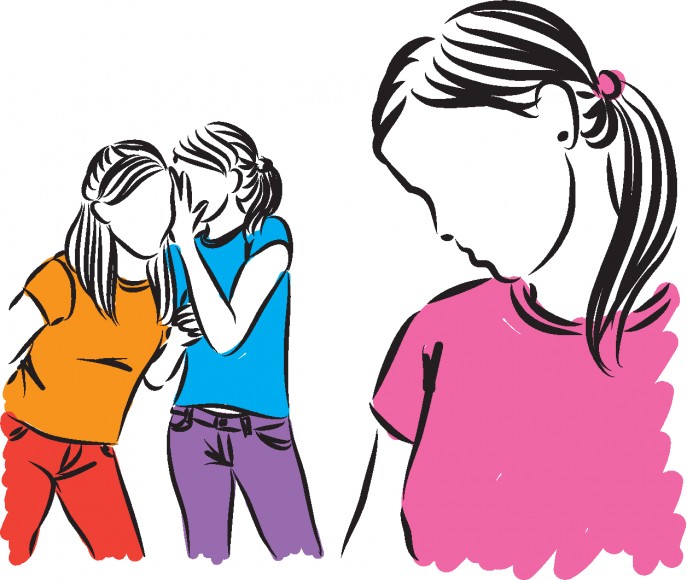
The landscape of female friendships can be tough to negotiate for anyone. However, autistic girls often have the wrong map altogether, explains Felicity Sedgewick…
Autistic girls can have social behaviours and friendships that look very different from both those of autistic boys and non-autistic girls.
For example, girls may mimic the behaviours, interests and even speech patterns of people they are friends with. This is an attempt to fit in and be accepted. They may also memorise information about their friends’ interests, or learn ‘scripts’ so that they can talk to new people.
Autistic girls may become fixated on one person in particular. They focus on making that person their best – and only – friend. This can be very intense for both people and can sometimes lead to a falling-out.
“Autistic girls may become fixated on one person in particular”
Autistic girls find recognising and managing conflict much more difficult than non-autistic girls do, impacting on their ability to repair and maintain friendships. Alternatively, some girls will form many casual friendships, but not stick to one group. They might not have close friends with whom they spend most of their time.
Guiding hands
It can be difficult for staff to support the social lives of autistic students alongside their studies, but it is a crucial aspect of school life and personal development.
Autistic girls may take literally whatever is said to them, leaving them vulnerable to being manipulated. Their less-developed social awareness can leave them open to gossip and exclusion. It is important to try and notice these behaviours and intervene or explain.
“Their less developed social awareness can leave them open to gossip and exclusion”
Girls who have just one or two very intense friendships may need help widening their circle and understanding why this matters.
Explaining that most people have several friends so that no single person gets overloaded or bored, and helping them find other young people with shared interests, can be a good form of support.
Girls who appear to be friendly with almost everyone, but who have no close friends, may need support in spending more time with peers. However, they may be happy with their less demanding, casual friendships.
The best course of action is to let each girl choose what sorts of friendships she prefers and to try to help her make and keep the friends she wants to have.
Felicity Sedgewick is a PhD student at the Centre for Research in Autism and Education, University College London.
Undiagnosed autism in girls
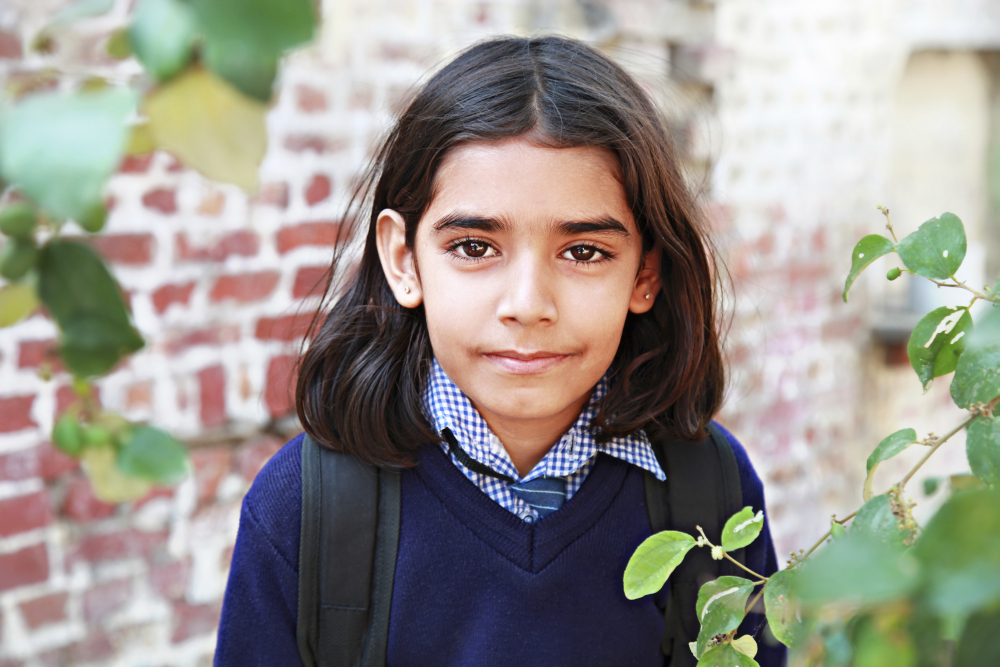
Just because she’s not causing trouble, it doesn’t mean a student isn’t struggling with undiagnosed autism, explains Gordon Cairns…
Imagine trying to identify a ‘problem’ pupil in class who is eager to please by being extremely helpful, has a desire to succeed and may even have perfectionist tendencies.
Alternatively, the ‘difficulty’ could be that she has a passive personality, is compliant and may be one of the quieter pupils in the room. Perhaps she comes across as shy, innocent and unassuming and is very unlikely to be disruptive.
Yet a girl displaying some or all of these behaviours may well have an undiagnosed autism spectrum disorder. Worryingly, if the condition isn’t spotted, she could be experiencing eating disorders or self-harming and developing mental health issues that last into her adult life.
Under the radar
The trouble is that to a harassed teacher, with 30 demanding pupils and a range of behavioural issues, the girl with these traits may sound like the ideal student.
Furthermore, she may be very good at camouflaging her difficulties by mimicking more sociably able pupils in the class, making her condition even more difficult to recognise.
Contrast this with a lot of autistic boys who display a number of recognisable traits, such as a lack of empathy or an obsessional interest with obscure subjects, such as light bulbs.
It has been notoriously difficult to find a ratio of male-to-female autism that everyone agrees on. Figures range from, at one extreme, a 2:1 male-to-female ratio, to others believing that only one girl to every 16 boys has the condition.
From my own experience of working in an autism unit for over a decade, our numbers typically break down to one girl for every ten boys.
A National Autistic Society survey from 2012 showed how problematic it is to get a diagnosis for a girl. While 50% of boys with autism were diagnosed by the age of 11, only 20% of girls were. Just as worryingly, 42% of girls were reported as having been misdiagnosed, compared with 30% of boys.
“While 50% of boys with autism were diagnosed by the age of 11, only 20% of girls were”
Undiagnosed dangers
While these girls may outwardly be model pupils, their stress will often have to be released through another outlet such as self-harming or an eating disorder.
In fact, an increasing number of young women are being diagnosed with autism after being initially seen by a doctor for an unrelated condition. An article published in Neuropsychiatric Disease and Treatment in 2015 identified a connection between young women who have been diagnosed with anorexia nervosa and Asperger syndrome.
The risk is that the autistic element of these girls’ mental make-up is overlooked as clinicians look to treat the eating disorder. This may then lead to a simplification in the diagnostic consideration and therapeutic procedures.
The good news is that once they have received a diagnosis, girls can receive additional support. With greater understanding of self, their anxiety will lessen and they will be less likely to take part in harmful activities which could cause lasting physical damage.
By contrast, if left undiagnosed, in later life they might have a history of mental health issues and in extreme cases, feel suicidal.
Gordon Cairns is an English and forest school teacher, and also works in a an ASD unit for secondary pupils
Autism support resources
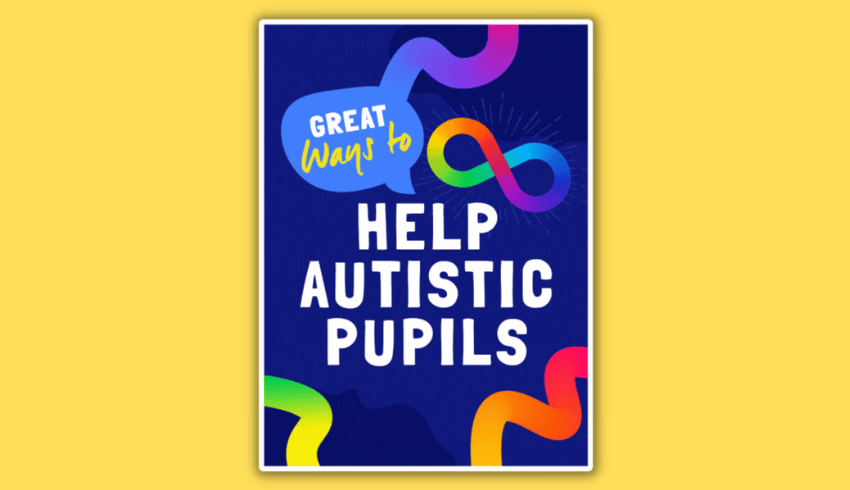
This eight-part CPD series will give you practical suggestions for helping autistic children in your classroom.
Social skills lesson plan
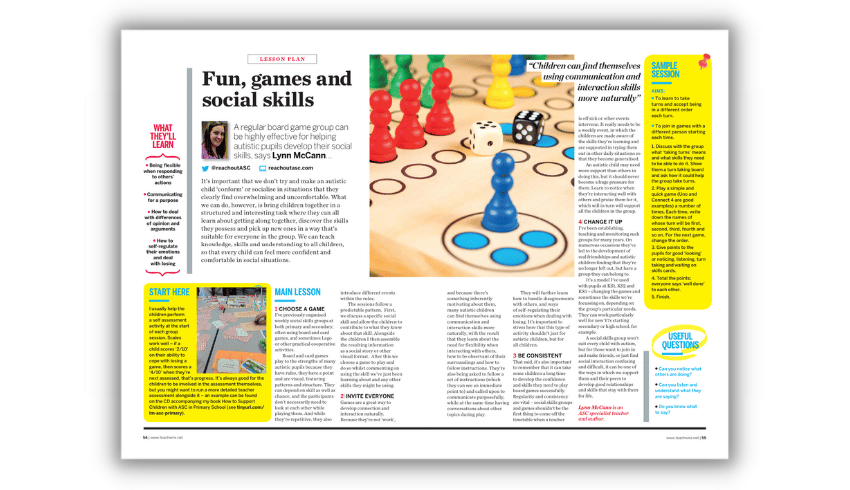
Use this free lesson plan to bring autistic children together in a structured, interesting task that will help them learn to get along together, celebrate their skills and help them learn new ones.
Problem-solving lesson plan
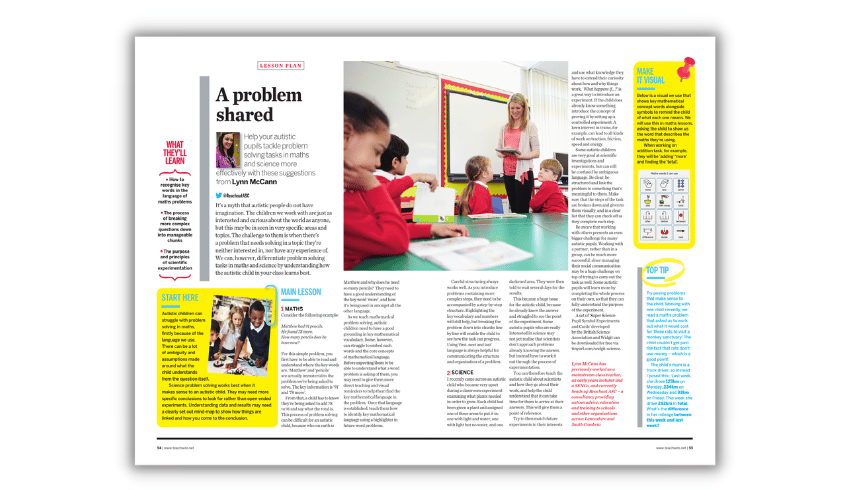
Help the autistic children in your classroom to tackle problem-solving tasks in maths and science with this free lesson plan.
What one autistic girl wants her teachers to know

In this article, 12-year-old Libby Scott pens a letter to her teacher about the things she wishes they knew about how autism affects her at school.
Find out more about the role of SENCo, including its challenges and how to succeed.
